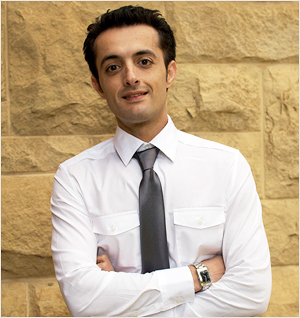Interview with Elias Aboujaoude MD, author of ‘Virtually You’
‘Virtually You‘ is the book I reviewed some time back. It talks about the dangerous effects life online can have on our personalities and lives. I managed to get hold of the author of the book, Elias Aboujaoude MD, for a quick email interview. I approached him with the thought that perhaps he could offer some thinking points for the direction I have considered taking my MA thesis myself and which I also wrote about briefly – online long distance relationships. Being a full time clinical psychiatrist, Dr. Aboujaoude is a very busy person, so I am very grateful he managed to spare a few minutes to reply to my questions.
I picked up on a few points he made, which I would like to study further on my own. He talks about relationships becoming more superficial and fast-paced, which even speaking from personal experience has been true – not necessarily in a bad way though. I understand that studying something like this exhaustively would be very time consuming and I also might not have the necessary psychological expertise to analyse human relationships. However, if I could find a way to make it more about the ‘online mechanisms’ and less about the mechanics and dynamics of the relationship, I think the scope could be more realistic. There is also a cultural and societal backdrop to these possibly more superficial and fast-paced relationships. Maybe the word ‘superficial’ is a bit harsh to use, but don’t we all live lives where we have to manage more and faster. Multi-tasking has become a virtue and necessary tool in order to cater for our society’s and economy’s needs which have also morphed our own personal ambitions to fit those new conditions. Multi-tasking and digging deep don’t go together. And how is a relationship that doesn’t adapt to our lifestyle supposed to fit into our lives? We need to be better, faster, stronger – could relationships maintained online be the answer to fight loneliness in the busy urban ultra-achiever lifestyle?
The ever present issue about privacy also surfaces when talking about relationships online. Aboujaoude sees it as ‘lack of personal space’, but this is also a two-edged sword. To an extent the transparency can also be a good thing, in theory being more open in (any) relationship should be a good thing in the long run? I think this is another interesting subject to further studies – look into exactly how much online openness is good and when do things turn bad. This would require several case studies and observation over time. The fine line between necessary and too much, when looking at internet-mediated relationships is fascinating. What Aboujaoude says at the end – “we are more complicated” – is exactly what makes me want to prod these issues more. What exactly makes us more complicated, our relationships more complicated – and how? Hopefully I can direct this research so that it doesn’t get too psychological and is more about the symbiosis (or parasitism?) of our ‘real’ and ‘virtual’ lives. And where does the line go anyway?
Below is the interview, word-by-word. Questions by Ave Tampere and answers by Elias Aboujaoude MD.
AT: You’ve done a lot of work with internet addiction and studied the effects of the online on our personality and lives in general. Based on your experience, what are your thoughts on the seemingly increasing trend of maintaining long-distance (romantic) relationships ‘alive’ through social media?
EA: The Internet certainly increases the frequency of contact and undoubtedly makes staying in touch easier and less expensive. Unfortunately, however, it also has a tendency to make relationships more superficial and fast-paced. That’s the challenge I see in romantic and non-romantic relationships online.
AT: Seeing as the nature of social media and social networking sites is to be open, is it fair to say that also our relationships become more open because of them? What can the effect of such openness be on our relationships (both romantic and friendly)?
EA: If by “open” is meant more transparent and less secretive, then, yes, the Internet certainly makes relationships, and every other aspect of life, more open. But in doing so, the Internet erodes privacy, and I don’t think that lack of privacy and lack of personal space are a good thing for relationships or personal development in the long run.
AT: What could be the biggest dangers of keeping a long-distance relationship through social media, internet-related media (based on your previous experience in the effect of the internet on us)?
EA: See question 1.
AT: What is the importance of physical closeness in relationships, and to what extent do you think that can be replaced with communication through social media and social networking sites?
EA: Virtualism does not replace the need for physical closeness–we still crave it. But the more time we spend interacting virtually, the more awkward we may start feeling in our face to face interactions. There is interesting new research, for instance, on how excessive exposure to online pornography can complicate real-life physical intimacy.
AT: What do you think is the broader effect of social media on human relationships? Are we doomed or saved? Why?
EA: We are engaged in a big social experiment, and like any true experiment, the results cannot be fully predicted. I don’t like to think we are doomed because of the Internet, despite many “red flags” and many reasons for concern. What I think we are, for sure, is much more complicated.
Dr. Aboujaoude is a psychiatrist and author based at Stanford University where he is the Director of Impulse Control Disorders Clinic and the Obsessive Compulsive Disorders Clinic. His research interests have focused on obsessive compulsive disorders and behavioural addictions, including problematic Internet use.
